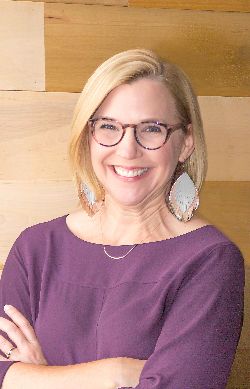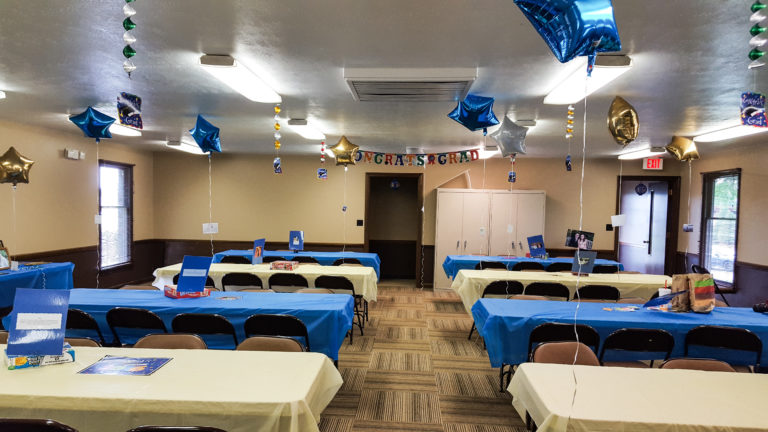Jodie Niznik: Crossroads Part 1
| Part 1 of an Interview with Jodie Niznik, Author of Crossroads Q: Your new Bible study, Crossroads, examines the lives of Esther and Jonah, which seems to be an unlikely pairing. What did these two have in common? Esther and Jonah were very different people with very different callings. Esther was called by God to save a people she loved, her people. And Jonah was called by God to save a group of people that he most likely loathed. To say the Ninevites were enemies is putting it kindly. While Esther and Jonah were very different, they also had much in common. They were both providentially placed in their time and space in history and given gifts and skills that made them the perfect people—really the only people—that could fulfill the task God was asking of them. They were invited by God to follow him on a journey of obedience. Neither knew what the outcome would be. I love studying Esther and Jonah together because they responded to God so differently. Esther walked forward in brave, bold obedience, while Jonah literally ran the other way. It’s easy to applaud Esther and shake our heads at Jonah. But the truth is, we have a little Esther and Jonah in each of us. There are moments we feel brave and bold, and moments we turn away. Studying them together not only helps us see how to choose faithful obedience but also helps us to know God better and understand his lavish grace for us—even when we run away. Q: What makes Esther different from any other book in the Bible? How does this “absence” point to one of the main themes of the book? A quick read of the book of Esther reveals something very interesting: there is no mention of God in the entire text. In fact, Esther is the only book of Scripture that doesn’t explicitly mention God. The absence is glaring. How can an entire book of Scripture not mention God? Where is he? As we discover in this study, he is actually everywhere. He is the unseen main character who orchestrates every moment, every twist, and every “coincidence.” This truth points to another main theme of the book: the providential care of God. Providence simply means that God is working in our normal lives, providing care and provision even when we can’t see him. He is in control; he always is. Many believe the purposeful lack of mentioning God is part of the genius behind the book of Esther, because even when he isn’t named, he is still there. He is unseen but holding everything together. What I love about this seeming absence is how it mimics our lives. God is also the unseen main character in our story. He is providentially overseeing every aspect of our journey—offering care and provision for every moment. What a gift and what a relief. Q: In one lesson, you also compare Esther to Daniel—both were called before a king while in captivity, but they displayed their faith and background differently. How does that apply to us today and our own calling? Jews in both Esther’s and Daniel’s time adhered to strict dietary laws. When Daniel was in captivity, he felt led to refuse the food that wasn’t in compliance with Jewish dietary regulations. Esther, on the other hand, did eat the food that was offered to her and thereby broke the dietary laws. The Lord blessed both Esther and Daniel in these very different circumstances. I think this provides necessary instruction for us that there isn’t always one right answer—and an answer provided for one person may be different than the answer for another. This emphasizes the importance of staying in an active and intimate relationship with God. We need to continually seek him and what’s best in every situation we find ourselves in. God asked Daniel to refrain from eating the rich foods offered to him, and God asked Esther to blend in by eating the food offered to her. Both were following God’s best in their specific situations. Q: What can we learn from Esther about how to approach our own “for such a time as this” moments? How can we prepare for those crossroads moments? The most inspirational part of the book of Esther is when she stands at her crossroads and confesses that she knows what must be done and that perhaps she has come to her royal position “for such a time as this.” She also knows it could cost her life but boldly declares, “If I perish, I perish” (Esther 4:16). And then, she actually followed through. She did exactly what she knew she needed to do. How did she remain brave and not talk herself out of this risky but necessary next step? There are a few things she did that helped her stay strong. First, she invited others to be on the journey with her by declaring her intentions to them. Second, she sought God through fasting and prayer—as did those around her. And then finally, she took the brave and scary step and went. As we prepare for our own crossroads moments, we should do just what Esther did. First, share the next step with trusted Jesus-loving people. Then start praying and ask them to do the same. I’d also recommend that you try fasting—from food or something else—to help you seek Jesus with more intention. Finally, when you sense it is time, go. Be brave and bold and walk into your “for such a time as this” moment. Q: Patience and timing are a significant part of Esther’s story. What can we learn from Esther about God’s plan for us? Esther, at great risk to herself, went before the king without being summoned. As we see in other places in the book, he was a man prone to making rash decisions and could have had her executed on the spot for coming to him without being called. Once she finally did go to him, he extended his scepter to her as a sign that she was welcomed. Then oddly, she decided not to tell him what she needed but invited him to a meal. At that meal, she still did not disclose what she intended and invited him to a second meal. For one reason or another she felt led to wait, and it’s a good thing she did because the king learned some very needed information from an unlikely source between these two meals. Waiting seems counterintuitive for us. We live in a hyper-fast and immediate world, yet God’s timing, while often slower than we want, is always the perfect timing. Had Esther jumped ahead, the king wouldn’t have had all the information. How did she know to wait? The text doesn’t tell us, but I imagine that as she fasted and prayed, she was listening to God, and he was instructing her. This is just one more reason why it’s important to slow down and listen to the Lord. He will guide us, and when he does, the timing will be perfect. Q: Fasting is an activity you suggest more than once. What are some examples of fasting we can do today in order to hear God’s calling for us? Fasting is simply a way to help us become more attuned to what God is doing. We don’t fast to get anything from God but to become more attentive to him. There are many things we can fast from. The most obvious and common fast is from food. Fasting from food creates physical pangs and longings in our bodies that are hard to ignore. These physical cues help us remember to seek God with more intention in those moments. However, not everyone can or should fast entirely from food, and that’s OK. We can still have an effective fast as long as we choose something that we do with regularity and, when we take this thing out of our lives, it would be noticed. So, for example, you could fast from a specific food or drink, social media, the news, or even listening to anything while driving in your car. The ideas are endless. If you are wanting to do a fast to help you seek the Lord and discern your next steps, take a few minutes to ask him in prayer what some good fasting ideas could be. Choose something, decide on a time frame, and then try it out. Every time you want to engage with or have the thing you are fasting from, turn to God in prayer instead. Q: What are the elements in each lesson of this Bible study? How is Crossroads designed to be used? Each lesson starts with a short practice section. Many people use the term spiritual disciplines to describe these activities. And while I do like that phrase, I’ve settled on practices because it feels more like an invitation to practice something in our relationship with the Lord, often something new. These practices don’t take a lot of time, but they often require planning—which is why I start each lesson with them. My hope is that readers will find something that brings new life to their relationship with the Lord as they try these things out. Crossroads is broken into five daily sections for each lesson. Each day shouldn’t take more than thirty minutes to do. The study can be used in a group or individually. |
| Click here to read an excerpt of Crossroads. |
| About the Author |
 Jodie Niznik is the women’s and adult ministries pastor at Irving Bible Church in Irving, Texas. She has served in various roles on the pastoral team at her church over the last twelve years. Her calling and passion is to equip people to take the next step in their journey with Jesus. She loves to write about and teach scriptural truths in practical and easy-to-understand ways. Niznik has an undergraduate degree in broadcast journalism from the University of Colorado and a master’s degree in Christian education with an emphasis in women’s ministry from Dallas Theological Seminary. She is the author of Crossroads: A Study of Esther and Jonah for Boldly Responding to Your Call and Choose: A Study of Moses for a Life That Matters, and the coauthor of Galatians: Discovering Freedom in Christ Through Daily Practice with Sue Edwards. She is also the host of the So Much More podcast. Niznik and her husband, Tim, have two young adult daughters, Taylor and Billie. The Nizniks miss their daughters but love their quiet Saturdays. Niznik believes gummy bears and coffee are sweet gifts from the Lord that provide fuel as she writes Bible studies and prepares biblical teachings. To learn more about Jodie Niznik, visit www.jodieniznik.com. She can also be found on Facebook (@JodieGNiznik) and Instagram (@jodieniznik). Jodie Niznik is the women’s and adult ministries pastor at Irving Bible Church in Irving, Texas. She has served in various roles on the pastoral team at her church over the last twelve years. Her calling and passion is to equip people to take the next step in their journey with Jesus. She loves to write about and teach scriptural truths in practical and easy-to-understand ways. Niznik has an undergraduate degree in broadcast journalism from the University of Colorado and a master’s degree in Christian education with an emphasis in women’s ministry from Dallas Theological Seminary. She is the author of Crossroads: A Study of Esther and Jonah for Boldly Responding to Your Call and Choose: A Study of Moses for a Life That Matters, and the coauthor of Galatians: Discovering Freedom in Christ Through Daily Practice with Sue Edwards. She is also the host of the So Much More podcast. Niznik and her husband, Tim, have two young adult daughters, Taylor and Billie. The Nizniks miss their daughters but love their quiet Saturdays. Niznik believes gummy bears and coffee are sweet gifts from the Lord that provide fuel as she writes Bible studies and prepares biblical teachings. To learn more about Jodie Niznik, visit www.jodieniznik.com. She can also be found on Facebook (@JodieGNiznik) and Instagram (@jodieniznik). |
| What Others Are Saying |
| “From time to time, we all stand at crossroads, big ones that alter our life’s direction and small ones that keep us on God’s good path or divert us onto painful detours. Esther and Jonah stood there too, and each responded differently, teaching us valuable lessons for today. Niznik’s fresh approach tells it like it really was . . . and is. Each weekly lesson includes a practice session to help us apply gleaned wisdom for navigating our own crossroads. Jodie’s studies move us toward transformative biblical literacy and an action-packed faith that lives what’s learned. I trust her studies and you can too.” ~ Sue Edwards, professor at Dallas Theological Seminary and author of the Discover Together Bible Study series “Every follower of Jesus comes to defining moments of deciding either to follow the whispers of God or to ignore that voice and go our own way. With tremendous skill and insight, Jodie Niznik digs into two remarkable Old Testament stories—Esther and Jonah. This study will stretch and challenge you as Jodie guides with wisdom and practical application each step of the way.” ~ Nancy Beach, leadership coach with the Slingshot Group and author of Gifted to Lead |










